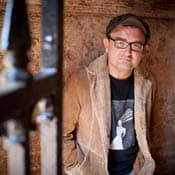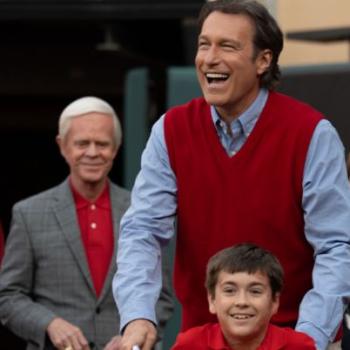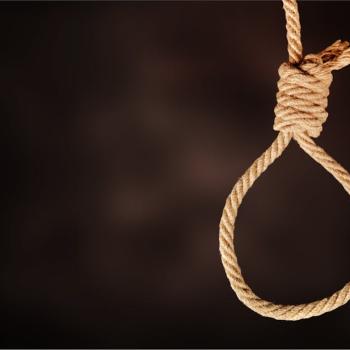 In his new book Monsters in America: Our Historical Obsession with the Hideous and the Haunting, author Scott Poole explores our cultural obsession with the dark and demonic, and argues that monster are not just fears of the individual psyche, but concoctions of the public imagination—reactions to cultural influences, social change and historical events. As part of our current Book Club feature on Monsters in America, the self-described "horror nerd" answered thirteen questions about his book, including how monsters have shaped our national identity, why he hopes people take their monsters more seriously, and what he considers to be American history's scariest monster.
In his new book Monsters in America: Our Historical Obsession with the Hideous and the Haunting, author Scott Poole explores our cultural obsession with the dark and demonic, and argues that monster are not just fears of the individual psyche, but concoctions of the public imagination—reactions to cultural influences, social change and historical events. As part of our current Book Club feature on Monsters in America, the self-described "horror nerd" answered thirteen questions about his book, including how monsters have shaped our national identity, why he hopes people take their monsters more seriously, and what he considers to be American history's scariest monster.
What possessed you to write this book, at this time?
"Possessed me" . . . nice image. And ironically, it had something to do with research materials I came across when working on my book Satan in America. Indeed, I see that book, while important in its own right, as preparing me for this bigger and broader project about America and its monsters.
I have to add that, while I am a historian and this is a historical work, I confess to being an irredeemable horror nerd. This made Monsters into a strange book I think, a combination of appreciation of a genre I love combined with an exploration of very real darkness.
You say your book is about "the history of America . . . one fear . . . one monster at a time." Why are we as a culture so obsessed with things that go bump in the night? And how has this obsession shaped our national identity?
There is a deep rooted American mythology of innocence and optimism, an amalgam of the advertising copy explorers used to sell settlers to the new world combined with the Enlightenment ideology that helped inspire the American Revolution. It's a new world. We've left behind the monsters of the past, the dreary religious wars, the domination of aristocracy, the ruins of the past.
And yet, the shadows are still there. There are parts of the story we'd rather suppress. The innocent new land was soon drenched in the blood of Africans and of the native peoples. We've fought useless wars. These are not the parts of the story we want to remember and these things find expression in our monsters. Its been said before that the monster is the "return of the repressed" and this is true—but true primarily in historical terms.
What is one thing we might not understand about America if we didn't pay attention to monsters?
Monsters are the map to where the bodies are buried on the American historical landscape.
Traditional textbooks often adopt a consensus approach, especially in the public school system. Time and again some of the most terrifying events are presented as challenges faced and overcome, we all learned something and America was better for it.
Oh yeah? Well, if the Civil War is all about the reuniting of a nation then why do we come out of it with a new obsession with gore and the dismemberment of the body? If the story of the post-World War II era is that America emerged as a wealthy superpower, then why are we terrified of radioactive creatures from the depths and watching hundreds of films about alien invasion and subversion? If the 1980s inaugurated a new era of optimism, why it is that supernatural child-killer Freddy Krueger becomes our national icon?
Let's rewrite the subtitle. What other pithy phrases sum up this book?
That's pretty fun because I get to play editor. I've had a lot of questions about my formulation "History is horror," so some version of that might have been useful. More than one person has been struck by my description of American history as a "landscape of corpses." Not sure if that really snaps.
Some might think we should have subtitled it "Scott geeks out." Once or twice I've wished I could have just subtitled it "Yes, this does have stuff about zombies in it" so I wouldn't have to answer the question over and over again.
What conversations do you want this book to inspire?
I hope horror fans talk about the films we love in a deeper way. Look, I know people just want to be left alone with their popcorn to watch their movies and I get that. But our monsters are layered phenomena and we should take our monsters seriously. What is going on with gender in slasher films? How do American conflicts over religion play themselves out in exorcism dramas?




